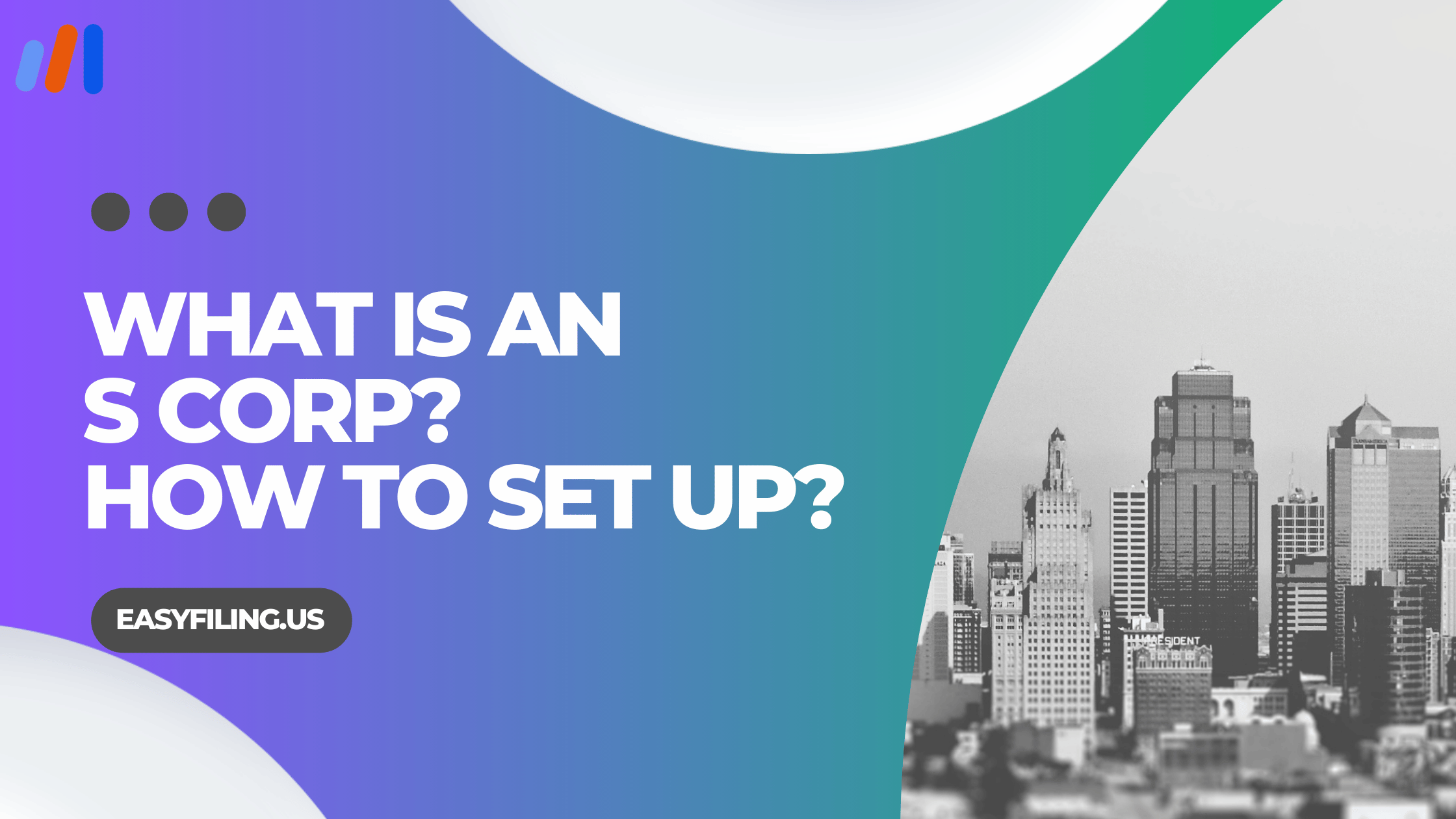Business structures are formed in multiple ways depending on the size and requirements of the business. Likewise, business owners nowadays wish to pay less or don’t wish to pay any tax at all. For that, they simply choose to set up an S Corp (small business corporation).
Well, what is an S Corp, and why does having a S Corp save you from paying corporate income taxes? Continue reading the article to clear out these thoughts.
What is an S Corp?
S Corp or S Corporation are business corporations that pass corporate income taxes as the business income, losses, or deductions are handled by their shareholders for federal tax purposes. It is also known as a closely held corporation or a limited liability company (LLC).
As the income and losses of the annual business flow through the shareholders, the shareholders must report their own individual income tax returns annually.
S Corp provided more advantageous features than the C Corp. Let us know the benefits of running an S Corp.
Benefits of S Corp
- Corporate Tax Saving: The most common benefit of having an S Corp is to be free of federal taxes at the entity level. Therefore, startup companies can save more money in their early years.
- Personal Income Tax Saving: S Corp business owners can lower their personal income tax by characterizing their income money as a salary or dividends. By receiving a salary as an employee, they also receive business profits and instead pay reduced self-employment tax.
- Corporate Dividends: With S Corp, company shareholders can act as employees receiving salaries and corporate dividends. The corporate dividends are tax-free until they do not exceed the shareholder’s stock basis.
- Establish Credibility: Setting up an S Corp helps the business establish credibility with potential customers, employees, and partners. This is because S Corp business owners have a formal commitment to their business.
- Transferring Interest: With S Corp, a business owner can easily transfer interest or adjust property without facing adverse tax consequences. Also, the business can comply with simple accounting rules.
- Protected assets: Having a S Corp protects the personal assets of the shareholders. However, during the business debts, the creditors cannot seize any personal assets such as land property, house, vehicles, bank account, etc of a shareholder.
IRS Requirements for an S Corp
To be eligible for setting up an S Corp you have to pass through certain criteria of the Internal Revenue Service (IRS) such as:
- A corporation must be a domestic
- Have permissible shareholders
- May be individuals, certain trusts, and estates and
- May not be partnerships, corporations, or non-resident alien shareholders
- It should have less than 100 shareholders
- Have only one class of stock
- Not fall under ineligible categories (i.e. certain financial institutions, insurance companies, and domestic international sales corporations)
How to Set Up an S Corp
Before setting up an S Corp, first, you must register your business as a corporation or LLC. To register your LLC, check out a complete guide on forming an LLC. After forming an LLC, you can then follow the steps below to set up an S Corp.
Step 1: Form Your LLC or Corporation
Forming an LLC or corporation is the initial step you shall take. Throughout the process, you might require a registered agent to draft articles of organization and other documents. Also, you can always connect with EasyFiling, one of the best LLC formation service providers to get your LLC registered.
Step 2: Get a Federal Tax ID Number
To set up an S Corp, you must also obtain a federal tax ID number such as FEIN, EIN, or Tax ID. Once your LLC is formed, you can simply obtain the Tax ID numbers by applying via the IRS website and filling out the forms required.
Step 3: File S Corp Paperwork (Form 2553)
The last step is to fill out Form 2553, the requirements by IRS where you shall provide all the basic information regarding your small business corporation.
After filling out form 2553 and completing the process within 2 months and 15 days of the beginning of the tax year, you can claim S Corp for the same tax year. If you fail to claim on the time period, your corporation will be valid for the following year.
Income Tax Return for an S Corp
Although S Corp does not have to pay corporate taxes, the business owners must file a Form 1120, a tax document used to report income, gains, losses, credits, deductions, and other financial information.
The form must be filed by the 15th day of the 3rd month after the corporation’s tax year. With Form 1120, the Internal Revenue Service (IRS) allocates the profit and loss amount to an individual shareholder.
Conclusion
Setting up an S Corp is the currently most common business structure that certainly provides more benefits than other corporations. However, business owners should consult tax professionals before moving forward with the process.
Also, make sure to know everything about the S Corp rules and regulations from the IRS website regarding the tax treatments in different states. Nonetheless, to streamline your process, you can always seek support from Easyfiling.
Frequently Asked Questions (FAQs)
How does an S Corp differ from a C Corporation?
The primary difference between S Corp and C Corp is that S Corp does not have to pay tax as the profit and losses of the business are passed through an individual shareholder. While, in C Corp, the business is taxed at the individual level when dividends are distributed.
How is income distributed in an S Corp?
The income is distributed to the business shareholders based on their investing percentage in the business. The shareholders then report their income on their personal tax returns.
How do you switch from a C Corp to an S Corp?
To switch from a C Corp to an S Corp, the corporation has to file IRS Form 2553 by March 15 of the current tax year to be effective for that year.
Can an S Corp status be revoked or terminated?
Yes, S Corp status can be revoked or terminated when the shareholders agree to the revocation. Also, if the corporation fails to meet the eligibility requirements of the IRS, an S Corp can be terminated.









